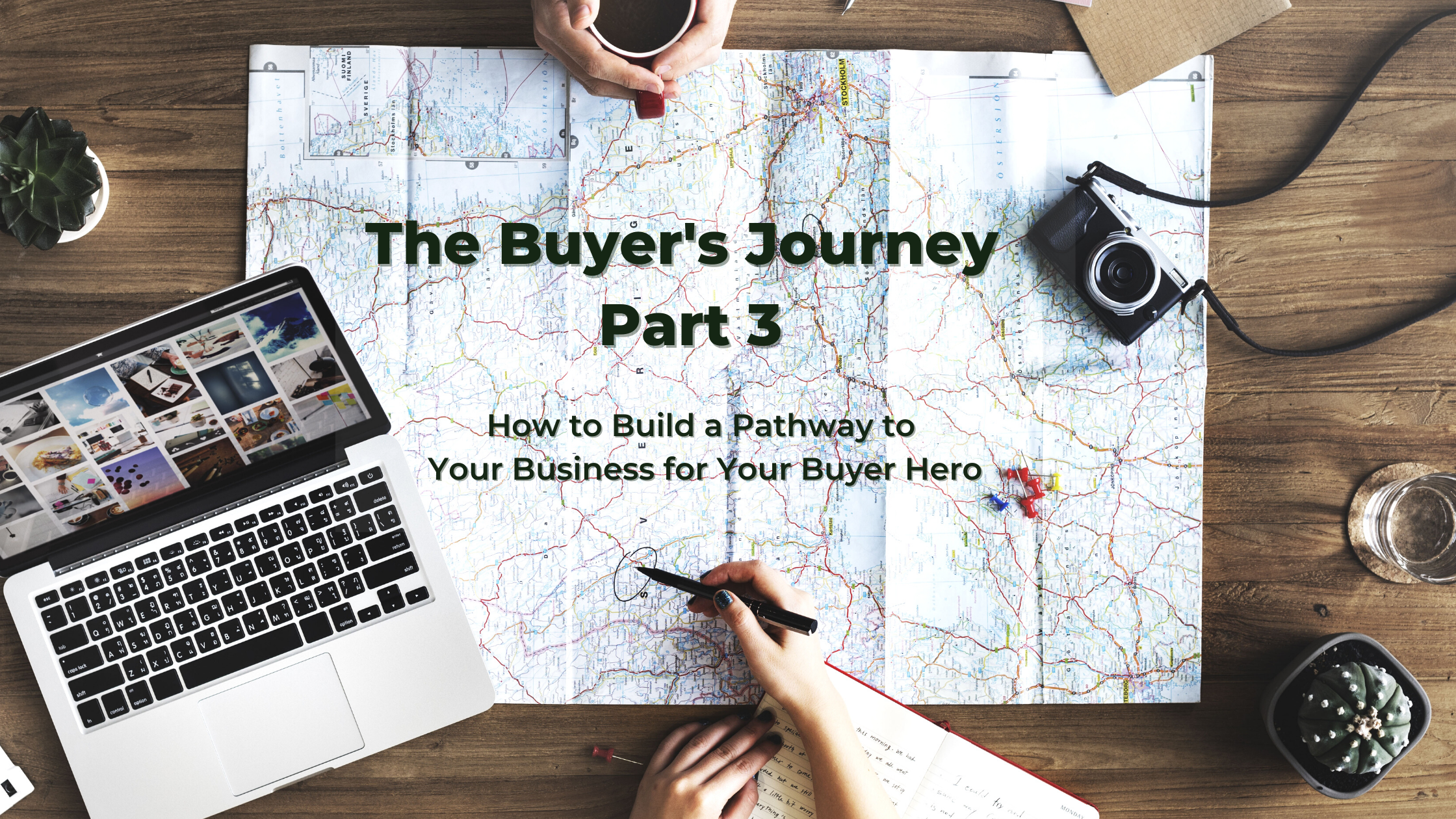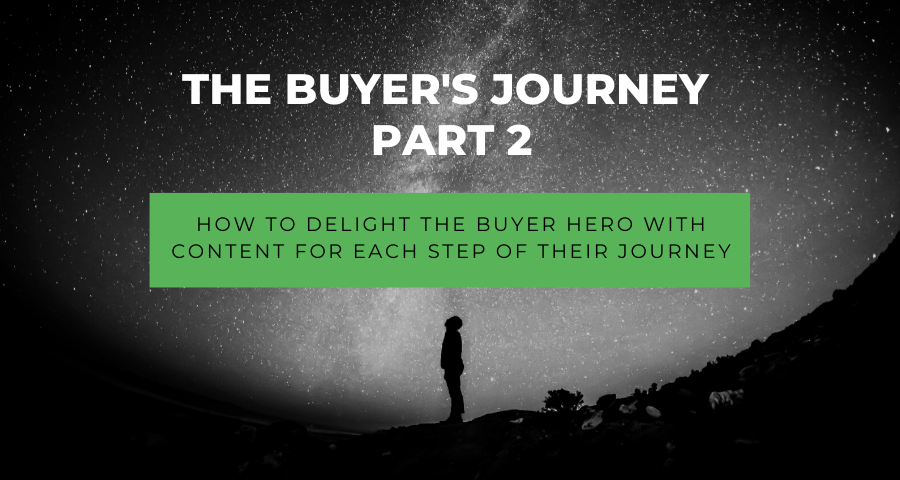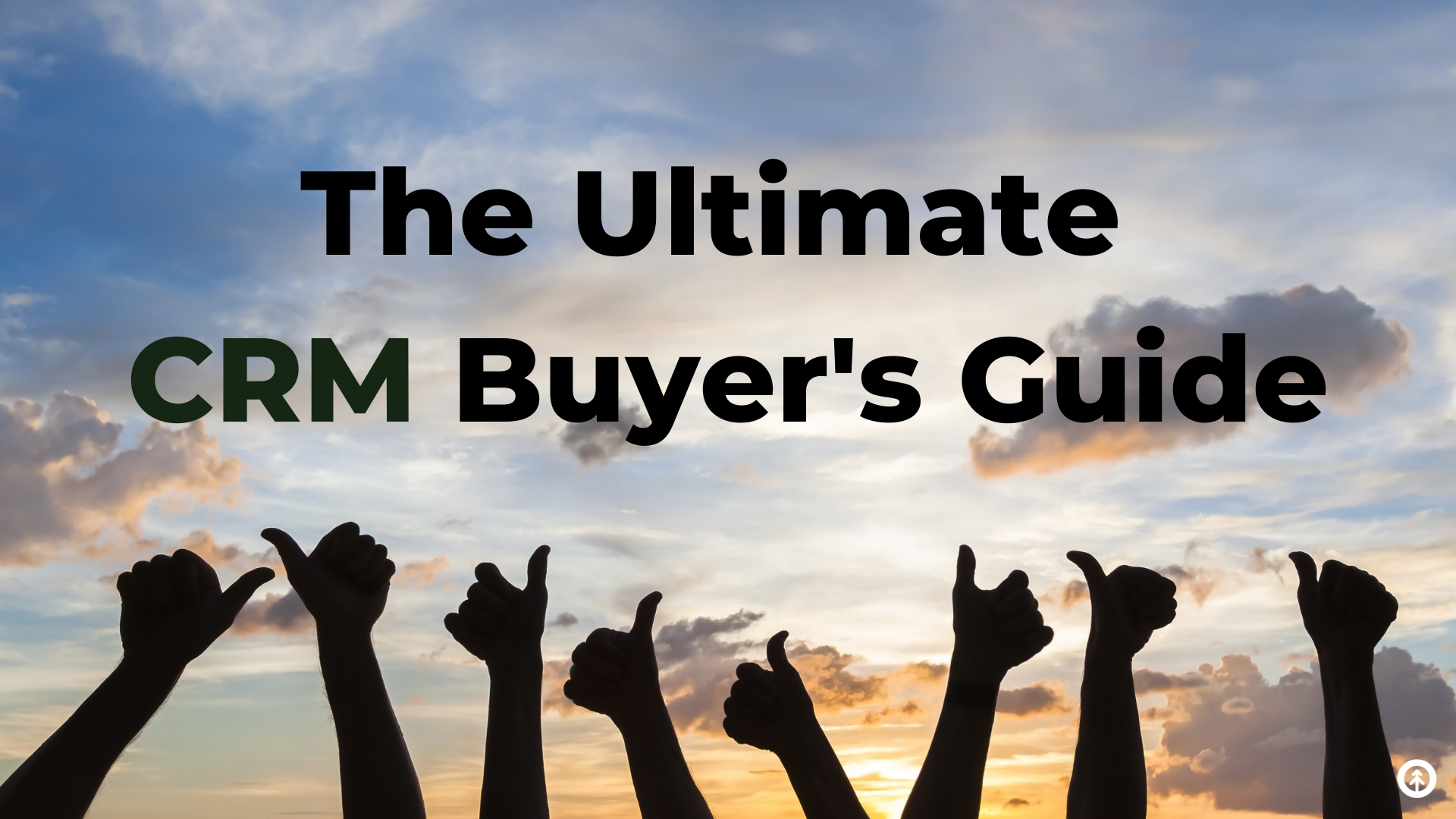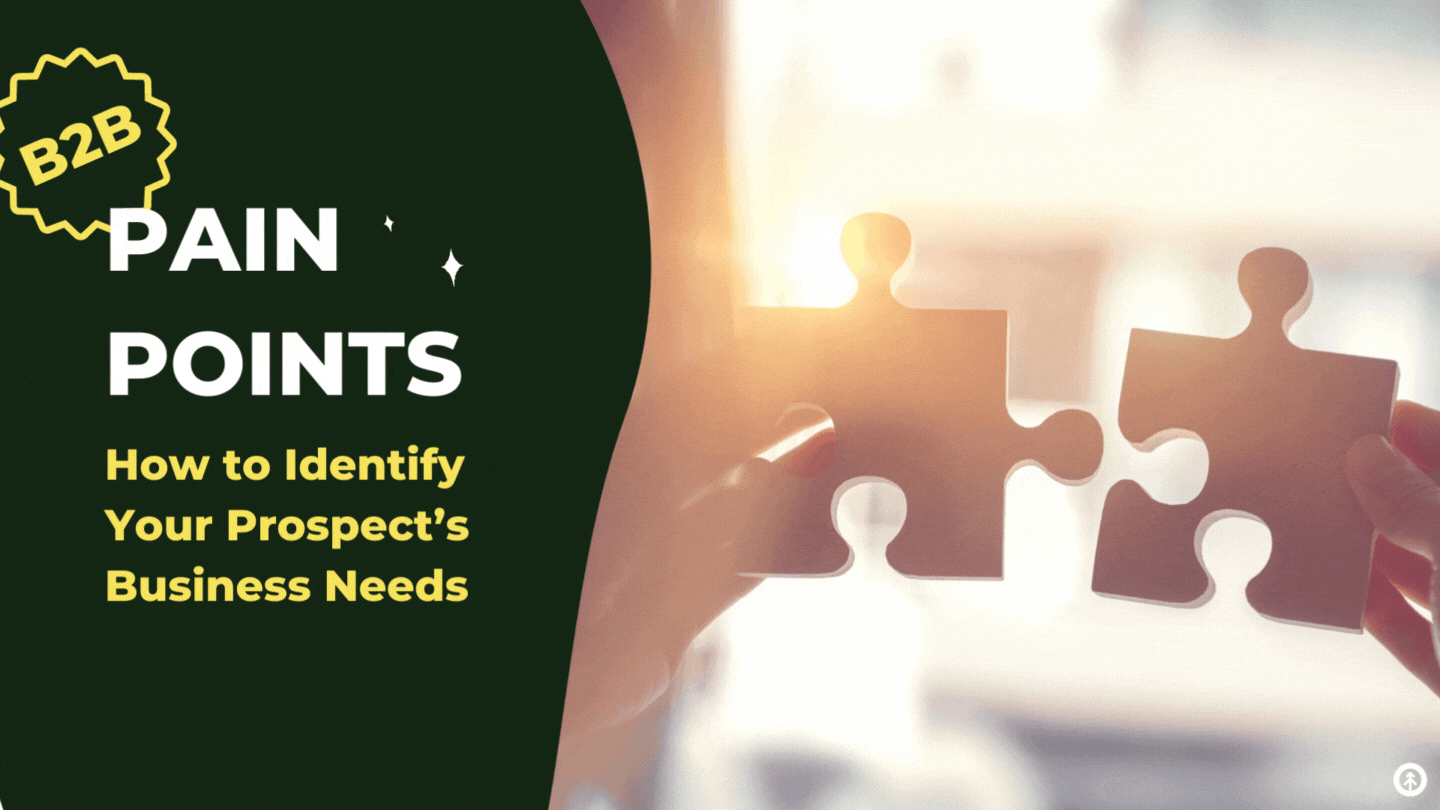The Buyer’s Journey: How to Mentor the Buyer Hero
In 1949, American professor Joseph Campbell wrote The Hero with a Thousand Faces, an anthropological work that outlines the universal concept of the hero’s transformative journey in story and myth throughout time.
Campbell’s theory states that we create heroes that mirror exactly who we are. It's said that stories that survive over time are those that present characters with whom we can empathize because we recognize ourselves in them.
A famous example of this theory in our stories is George Lucas’s use of The Hero with a Thousand Faces as the scaffolding for Star Wars. He deliberately followed the structure that Campbell outlined to create the journey of Luke Skywalker.
Lucas envisioned Luke as the protagonist, but, when I was a kid (and a grown-up) Princess Lea was my hero. And that works, too! Literally, every character in any story is a potential hero because, at the end of the day, we’re ALL heroes. Even the villains (but that’s another story).
At some point early in every story, a guide or mentor appears who is uniquely qualified to empathize with and assist the hero.
If we apply Campbell’s theory to our idea of inbound marketing and the Buyer’s Journey, that mentor archetype represents your Business Development Team. Their job is to help the buyer make it safely and happily ever after to the sale that eases their pain.
Our Business Development Lead, Will Davidson, is going to show you the importance of entering the Buyer’s Journey at the right stage and how he ensures our client's safe passage home by applying this concept to his process.
Every one of us—every hero—begins a journey with significant pain: an abduction, a loss, a threat of imminent destruction, so, one could say that our initial problem creates our path. Otherwise, we might never grow, change, or leave home. The Hero’s Journey.
Along that path, we experience the pain of the initial problem or other problems that must be recognized, figured out, and solved. That, my friends, is often about being a buyer—seeking out an elixir that will soothe or solve the problem. The Buyer’s Journey.
Though Campbell’s structure has more detail, both theories have three main components.
| The Hero’s Journey | The Buyer’s Journey |
| Separation | Awareness |
| Initiation | Consideration |
| Return | Decision |
With the hero archetype, we only need to think of any of our favorite films or novels to get the gist of it:
The main character is hurled out of their peaceful spot due to some major trauma that sets them out on the “road” where they face trials and tribulations until they are transformed by knowledge gained at which time they return back to where they were before—only smarter and bearing gifts to their community that brings peace.
Similarly, the buyer realizes something is causing them to suffer, so they seek information about how to solve it. Once they figure it out and commit to one solution, they buy which returns them back to a place of peace (and often bearing shopping bags).
Combine the two, and you’ve got it.
Almost immediately after our buyer hero realizes they’re neck-deep in proverbial quicksand, the mentor appears. Now we’re talking marketing: for this is the moment at which your Development Team enters the story.
The most successful team has this tool in their main hand: empathy. Your Development Team has to understand the pain before they can help, and help they must. They are the Obi-Wan Kenobi to the buyer’s Luke. Got it?
Will Davidson knows this well. He remembers exactly what it’s like being in the shoes of our clients when they find us at Growth because he remembers his own pain. He knows their story because he lived it, too.
Two years ago, Will was running his own business without a CRM. “That’s a specific memory that drives me to show our clients what onboarding to Hubspot can actually do. The difference is drastic: pain vs. relief from pain, and I want them to experience that feeling. I want them to succeed in their own businesses, and a powerful, intuitive CRM like Hubspot is key to that.”
Will comes by empathy honestly. His dad was a billboard company owner, and he remembers how his dad did it differently than everyone else. “He wasn’t that pushy, salesy guy. He was the guy who got exactly and only what you needed and then became a part of your family. His clients loved him because he genuinely loved them. He looked out for them. He was way ahead of his time.”
“Now, we know that the Buyer’s Journey requires someone who helps, someone who’s more interested in assistance than making a sale. But, back then, that’s not how salespeople were trained to do it. My dad was just being himself, and he knew that when you care about people, the rest takes care of itself. And it did. His clients thrived because of his help.”
When I asked Will who his hero is (and I was thinking, you know, from movies or books, from stories)—Will said, without hesitation: “My dad. He’s more than my dad; he’s my mentor.”
Will Davidson, Business Development Lead
Growth Marketing Firm
Will Shakespeare enters on cue: Awareness Phase
The Buyer’s Journey, like the hero’s journey, has its stages and its specific movement, and a Development Team absolutely must know exactly when to enter the buyer’s story. If all the world’s a stage, then the hero’s mentor/teacher/assistant enters always right on cue.
Will’s take: “I come in during the Awareness Phase. Our clients are aware that they need something, but they may not have the exact language to express what it is. My job is to ask questions about their pain and dig deeper until we get to what, exactly, that might be.”
“It could be anything from too few leads to too few hours in a day to get everything done. The best tool I have is my love for asking questions, listening, understanding, and empathizing so that I know exactly what we can do for them.”
Will is the mentor, the teacher, the guide on our client’s journey, and his role is to help, not to sell.
So, if a buyer goes through three stages in their quest for a solution and awareness is only the first one, what does Will do for the rest of the time? Let’s see:
Obi WILL Kenobi: Consideration Phase
In this stage, with Will’s listening ear, our buyer hero has figured out the who, what, and why of their pain. It has a name, a face, a language, and our buyer hero is fully committed to besting it.
- Think: Luke begins to learn how to master the Force. Who showed him he had the power?
- Think: Dorothy gets her ruby slippers and steps out onto the yellow brick road. Who puts her there?
- Think: Neo takes the red pill that reveals the Matrix. Who gave him the choice between the blue pill and the red one?
Will’s role in this stage is to show our clients the tools we offer at Growth and make a recommendation based on a deep understanding of what they need.
They may need:
- Website Design and/or Development
- Branding and Marketing Strategies
- Content
- Hubspot Onboarding
- Sales Automation
- ...or the whole shebang.
He goes through the benefits of each one so that the buyer hero is able to make a choice for themselves. This is the spirit of mentorship and guidance that Will loves the most about his job because he remembers his dad’s way and his memory of his own heroic journey. That wisdom and XP allows Will to be the guide our clients need to move into the third stage of pain management: the decision phase.
Will You Let Us Help?: The Decision Phase
Our buyer hero has all the tools laid out before them, and they’ve committed to making a choice and taking the steps necessary to solve their pain. Now what?
Will’s work now is to show the client the difference between Growth and our competitors. Client service makes all the difference, and this is when the system comes full circle right back to empathy.
“Taking the time to understand your clients early on so that you can anticipate objections far in advance and prepare for them is key. But so is just offering up solutions and service that you would hope for if you were in pain and in need of a solution.”
Indeed, we are all heroes. Every one of us is a buyer in search of a solution.
We’re all seeking to return home with the elixir.
Development Teams that understand their own journeys as buyer heroes bring the utmost value to clients. Understanding the journey itself and circling back to deconstruct your own experience as a buyer hero is where empathy originates and where all good stories end and begin again with growth and higher wisdom (and happy heroes).
Want to know more about how we help our clients grow? Set up a meeting with Will himself.
Explore More Insights: Related Blog Posts
-
 Sales EnablementJun 29, 2021
Sales EnablementJun 29, 2021 Growth Marketing Firm
Growth Marketing FirmBuyer’s Journey Part 3: Your Ideal Customer at Every Stage
(Last updated July 5, 2022) The tidal wave of options available to buyer heroes can create an overwhelming...
-
 Inbound MarketingJun 18, 2021
Inbound MarketingJun 18, 2021 Growth Marketing Firm
Growth Marketing FirmThe Buyer's Journey, Part 2: Content to Attract + Engage + Delight
(Updated March 31, 2022) In last week’s Growth blog, we talked about how the Buyer’s Journey mirrors the...
-
 Inbound MarketingOct 5, 2021
Inbound MarketingOct 5, 2021 Growth Marketing Firm
Growth Marketing FirmBuyer Personas vs. Buyer Profiles: What Makes Them Different
At Growth, we’re often asked to create buyer personas for clients, and we’re happy to do so because they're...
-
 Inbound MarketingSep 15, 2021
Inbound MarketingSep 15, 2021 Growth Marketing Firm
Growth Marketing Firm4 Questions that Matter Most to Buyers & How to Address Them
It's easy to get caught up in creating top-of-funnel content for your inbound marketing strategy because it’s...
-
 Inbound MarketingSep 20, 2021
Inbound MarketingSep 20, 2021 Growth Marketing Firm
Growth Marketing FirmBuilding Relationships with Lead Nurturing
Gaining a new lead for your business through your marketing efforts requires a ton of strategic and creative...
-
 Inbound MarketingSep 13, 2021
Inbound MarketingSep 13, 2021 Growth Marketing Firm
Growth Marketing FirmIncrease Your Sales with Buyer Intent Data
(last updated August 25, 2022) The first step your ideal customer takes on their buyer journey toward your...
-
 Sales EnablementApr 5, 2022
Sales EnablementApr 5, 2022 Growth Marketing Firm
Growth Marketing FirmThe Ultimate CRM Buyer's Guide
A CRM (Customer Relationship Management software) is way more than a contact database or a place to store...
-
 Sales EnablementSep 7, 2021
Sales EnablementSep 7, 2021 Growth Marketing Firm
Growth Marketing FirmHow to Identify Your Prospect’s Business Pain Points
(last updated August 22, 2022) True business pain requires an immediate solution. The kind of business pain...
-
 Sales EnablementDec 10, 2021
Sales EnablementDec 10, 2021 Growth Marketing Firm
Growth Marketing FirmCustomer Segmentation Strategies for Growth
Customer segmentation is the process of grouping your customers together based on the factors (e.g....

